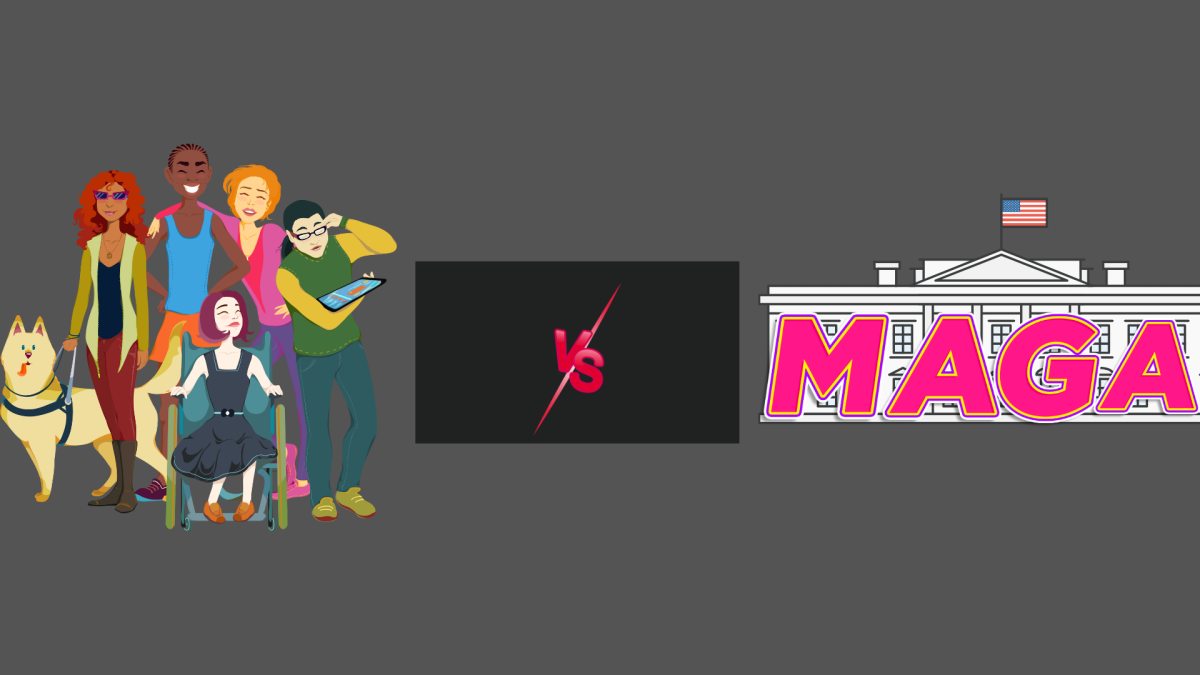As a person on the autism spectrum, I’ve come to feel a strong sense of community with the disabled community as a whole. Although our specific needs and experiences may differ, we all share the experience of living in a society not built for us. In spite of continuing discrepancies, over the past few years, we have made strides in being recognized and treated equitably by society.
But our victories are written in sand, and after returning to the White House, President Donald Trump is poised to crash over us like a wave, wiping out our gains. Non-disabled Americans may not be aware of all of the new Trump administration’s ableist behaviors, but they have the potential to cause devastating harm.
Let me explain.
Trump’s controversial executive orders banning Diversity, Equity, Inclusion and Accessibility-related programs and services are making it harder for Americans with disabilities to receive necessary support. Vanderbilt University’s Frist Center for Autism and Engineering, which helps neurodivergent people find employment in STEM fields, faces danger from its loss of government grants. According to The New York Times, Trump’s assertion that the FAA’s hiring of air traffic controllers with disabilities contributed to the fatal Jan. 26 plane collision outside Washington, D.C., led people with disabilities to worry about employment prospects.
Perhaps more concerningly, Trump has drastically cut funding and other support to the Department of Education, which enforces educational accommodations for students with disabilities. “I have a number of concerns related to funding for supporting students with disabilities,” said Sara Derdiger, of Niles North’s Special Education Department. “We know that the current administration is talking about closing the Department of Education. They’ve already cut a number of positions and grants, most recently this week. They let go [of] some attorneys who helped in cases that would make sure that students received equitable treatment in schools, and those attorneys are no longer working for the Department [of Education], so they can’t assist those students.”
Howeer, Trump alone is not solely responsible. Attorneys General in 17 states are filing to be absolved of enforcing Section 504 of the U.S. Code (the namesake of 504 plans), which requires accommodations for people with disabilities to be built into public life. The U.S. Attorney General’s office has likewise issued a memorandum promising that “the Department of Justice’s Civil Rights Division will investigate, eliminate, and penalize illegal…DEIA preferences, mandates, policies, programs, and activities in the private sector” and in federally-funded schools, which endangers policies to accommodate people with disabilities, among other marginalized groups.
In many ways, Trump and his allies threaten Americans with disabilities. They rob us of our dignity and mischaracterize us as damaged or incompetent. The Trump administration’s rhetoric and behavior around people with disabilities intensifies negative perceptions of us, which could make it harder for us to be hired for jobs, accepted in social situations, or provided with the support and accommodations we need to thrive. Derdiger, who teaches Niles North staff about tropes of disability in the media, is concerned that she will not be able to teach that class again next year. If this proves the case, teachers might not recognize problematic ways of treating students with disabilities that they need to avoid.
“I think the biggest impact right now is the uncertainty, right?” Derdiger said. “Not knowing what’s going to happen when, and just kind of waking up every day and seeing what’s going on.”
This may all seem overwhelming at face value. But it bears remembering that there are ways Americans, with and without disabilities, can take a stand. “I don’t really know, right now, how to stand up for supporting our students with disabilities, other than writing to the people in charge: the people in Congress, the people in the White House, and advocating for the rights of our students with disabilities,” Derdiger said. She also notes positive recent trends in disability representation and behind-the-scenes presence in the entertainment landscape, which will hopefully help build awareness of the needs of Americans with disabilities and inspire others to join us in fighting for justice.
“Fortunately,” Derdiger says, “we are living in a state where our local and state government is supportive of [the rights of Americans with disabilities]. But it needs to go beyond our local [and] state government, because they already are supportive. We need to start talking to people in Congress who might not have it as a priority in their minds. That’s sort of my thinking, is really being vocal with the people who represent the people of this nation, about why this is important, why it matters.”









